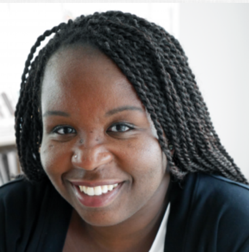How to Change Public Policy through Research Communication

By Elizabeth Mahood, PhD candidate in Plant Biology.
The American Association for the Advancement of Science (AAAS) Center for Public Engagement with Science and Technology has been delivering its workshop entitled “Engaging with Policymakers” for a decade now, and for a good reason. As said on the AAAS website: “nearly every major issue facing society has science at its core”, and yet, a deep knowledge gap exists between the public and researchers—including graduate students and postdocs. How to effectively breach this gap? How to communicate our knowledge so that the public, and policymakers, can make more informed steps toward resolving these issues? “Engaging with Policymakers”, delivered at Cornell on June 5th, addressed these questions. The workshop leader was Gemima Phillippe, a Communication Associate with AAAS who has broad experience in communicating issues in occupational health to policymakers.
This workshop made students think about an imperative part of being a scientist—how best to view and present our findings as understandable, important information with the power to shape the community at large. The participating students were from such varied fields as information science, chemical engineering, and human development, which emphasizes the need for strong communication skills across all scientific disciplines. Philippe guided students through this process with information about policy making and science communication. Best communication practices were relayed throughout the workshop, and included:
- making sure to facilitate “multi-directional” conversation over lecturing,
- highlighting the pros and cons of your research, and
- contextualizing your results so that they address a specific problem facing your target audience.
Students were also given valuable insight into the world of policy, including information about the substructures that make up certain governmental agencies, and how best to find and communicate with the policymaker that is most likely to be receptive to your information. Workshop attendees also gained valuable experience communicating their research in a succinct, coherent way to their peers, and determining how to turn their findings into policy changes. This workshop is very helpful for anyone who wishes to learn more about science-based policy in general, or who needs practice shaping their research into a meaningful and understandable message.
This spotlight is from the time period of the NIH grant (Sept. 2013- Jun. 2019) to the Cornell BEST Program now housed in the Graduate School as a university-wide initiative “Careers Beyond Academia” to encompass all disciplines.


